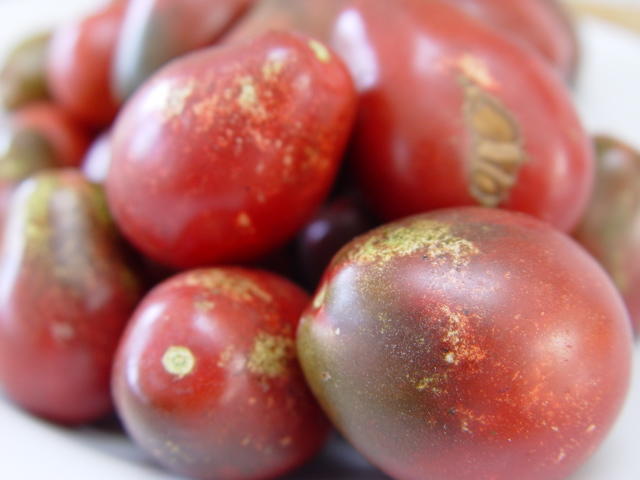 I've begun discussing an idea with my wife about original tastes in food. It first occurred to me when I took photos of Arizmendi Sourdough Beer Rye back in October, particularly the one at left. In brief, the idea is that mass produced foods deliberately evoke certain attributes of what cultures once recognized as intrinsic to a specific foodstuff, in the absence of the domestic and commercial practices that established these original attributes though the evocation has replaced the source material.
I've begun discussing an idea with my wife about original tastes in food. It first occurred to me when I took photos of Arizmendi Sourdough Beer Rye back in October, particularly the one at left. In brief, the idea is that mass produced foods deliberately evoke certain attributes of what cultures once recognized as intrinsic to a specific foodstuff, in the absence of the domestic and commercial practices that established these original attributes though the evocation has replaced the source material. Now, this is plainly not a new idea. But unlike cultural fields where it would be passe to even address the ubiquity and ubiquitous consumption of a knock-off --fashion comes to mind-- I haven't seen it addressed with food.
Also, whereas the fashion industry has a top-down influence on the clothes we wear, food has a bottom-up influence on what corporations produce. There are lots of examples of this kind of bottom-up influence (McDonald's going green, grocery chains embracing organic, etc.), but I'll save lengthy discussion of those for another post. Bear in mind though that all of these choices are about opportunities to make more money.
Still, with fashion detail-for-detail replication is the point of commoditization. And this is if anything the opposite concern of something like Walter Benjamin's essay The Work of Art In the Age of Mechanical Reproduction. With mass produced food, reduction of the complexity of tastes and textures to a low --if not lowest-- common demoniator seems to be the point.
 There is a corollary to this idea that has to do with what I described as "vegetable terroir" in my first post on Wild Boar tomatoes. We are generally reluctant to consider food in terms that we reserve for other cultural products. This even relates to terms that are used for wine, like terroir. I talk about food a lot, with people who enjoy food a lot, and I have never been asked for my views or been offered a view of whether I prefer tomatoes from one part of the state over another.
There is a corollary to this idea that has to do with what I described as "vegetable terroir" in my first post on Wild Boar tomatoes. We are generally reluctant to consider food in terms that we reserve for other cultural products. This even relates to terms that are used for wine, like terroir. I talk about food a lot, with people who enjoy food a lot, and I have never been asked for my views or been offered a view of whether I prefer tomatoes from one part of the state over another.I have had discussions with people about efforts like the Slow Food Ark of Tastes. These discussions are born largely out of food discoveries, like the arrival in my life this year of Bronx Grapes.
Hopefully lots to chew on here, but I'll stake out grounds for future discussion with this closing argument:
While any discussion of the corporate sponsored erosion of idiosyncratic values and attributes is necessarily involved in a larger debate about globalism, and is also necessarily political, I think we can agree though that a really good tomato is a really good tomato. That a lot of people will probably never get to eat one, and that it is for lack of a better word somewhat un-American to not want to at least ensure that they have an opportunity to consciously decide whether or not to.
No comments:
Post a Comment